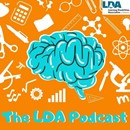by Kristina Scott-Quinlan, Ed. D.
October is Learning Disabilities (LD) Awareness Month. Awareness, in general, is the knowledge about a fact and a concern about this fact.1 So with learning disabilities, the fact we need schools to be aware of is: learning disabilities do exist and they are neurologically linked disorders that make it difficult to acquire a specific academic skill (e.g. reading, writing, math, expressive language, etc.). In other words, students really struggle in an academic area and they are not performing optimally in this area because of how their brain is wired; it is not because they are lazy, unmotivated, or uninterested in the subject matter!
There are over 2.4 million individuals that have been diagnosed with a learning disability. Research, however, shows that one in five individuals presents with a learning disability.2 These learning disabilities, although present since birth, often go undetected until a child reaches school age and academic tasks are asked of them. This is, however, changing due to research being done at the Gaablab in Boston. Nadine Gaab, an associate professor of pediatrics out of Boston Children’s Hospital, has been working to identify pre-markers to learning disabilities in the infant brain. She has been able to identify several pre-markers for developmental dyslexia and attention deficit hyperactivity disorder in individuals as young as six months of age.3 This is important research because it could mean that we could take a proactive rather than a remedial approach to teaching skills associated with specific learning disabilities. Until the time comes, however, where every infant can be screened in this fashion—we must rely on our schools to be aware of learning disabilities, identify them appropriately, and deliver research-based instruction so that students make progress in all curriculum areas.
Schools, and more specifically educators, have an important role to play in identifying individuals with learning disabilities. Educators should be doing this through taking data on how students are doing with curriculum-based assessments (CBAs). This is part of the Response to Intervention (RTI) process that the Individuals with Disabilities Education Improvement Act of 2004 (IDEA) lays out. In this RTI process, teachers need to look at why the student might be struggling in a particular area. They have to ask questions, such as: Is it my instruction? Does the student have gaps in knowledge due to missing large amounts of schooling? Are there pre-requisite skills I need to go back and teach? Is there something else (maybe neurologically-based, like a learning disability) at play here? Teachers must answer these questions by adapting their teaching and continuing to assess if a student is making progress or not, and if this progress is “effective”. As an educator answers these questions, they have to be aware of learning disabilities; this has to be considered as one of the reasons a student is not making effective progress in the curriculum and/or is having difficulty in a particular subject area and, therefore, may need accommodations to provide access to the curriculum in this area.
Learning disabilities are lifelong, but if educators can identify them appropriately and then deliver specialized instruction so that individuals learn compensatory strategies many individuals are able to overcome their limitations. They are able to progress and make strides with all areas of the curriculum, and develop their own self-efficacy and self-esteem as they develop their toolbox of strategies!
- “Awareness.” Merriam-Webster.com Dictionary, Merriam-Webster, Retrieved September 30, 2020 from: https://www.merriam-webster.com/dictionary/awareness.
- National Center for Learning Disabilities (2017). The state of LD: Understanding the 1 in 5. Retrieved September 30, 2020 from: https://www.ncld.org/news/newsroom/the-state-of-ld-understanding-the-1-in-5#:~:text=One%20in%20five%20children%20in%20the%20U.S.%20have,call%20a%20learning%20disability%20is%20really%20just%20laziness.
- Harvard Graduate School of Education. (2020). Faculty and research: Nadine Gaab. Retrieved September 30, 2020 from: https://www.gse.harvard.edu/faculty/nadine-gaab

Kristina Scott Quinlan is an Assistant Professor of Special Education at Salem State University in Salem, Massachusetts. She has eight years of K-12 special education teaching experience, and six years of teaching in higher education teacher preparation. Kristina is the State President of the New Hampshire Learning Disabilities Association. She is also the committee co-chair for the Education Committee of LDA. Kristina often presents and consults at state, regional, and national conferences and schools on topics including: social development, social and emotional learning, behavior as communication, universal design for learning, and creating smooth transitions for students as they exit the high school setting. Kristina holds a doctorate in educational leadership, a master’s in special education, and undergraduate degrees in English and exercise physiology. When not working, you can often find Kristina out running, cycling, or playing golf.

You can hear more from Kristina on the LDA Podcast channel as she interviews educational leaders, researchers, parents and more.


